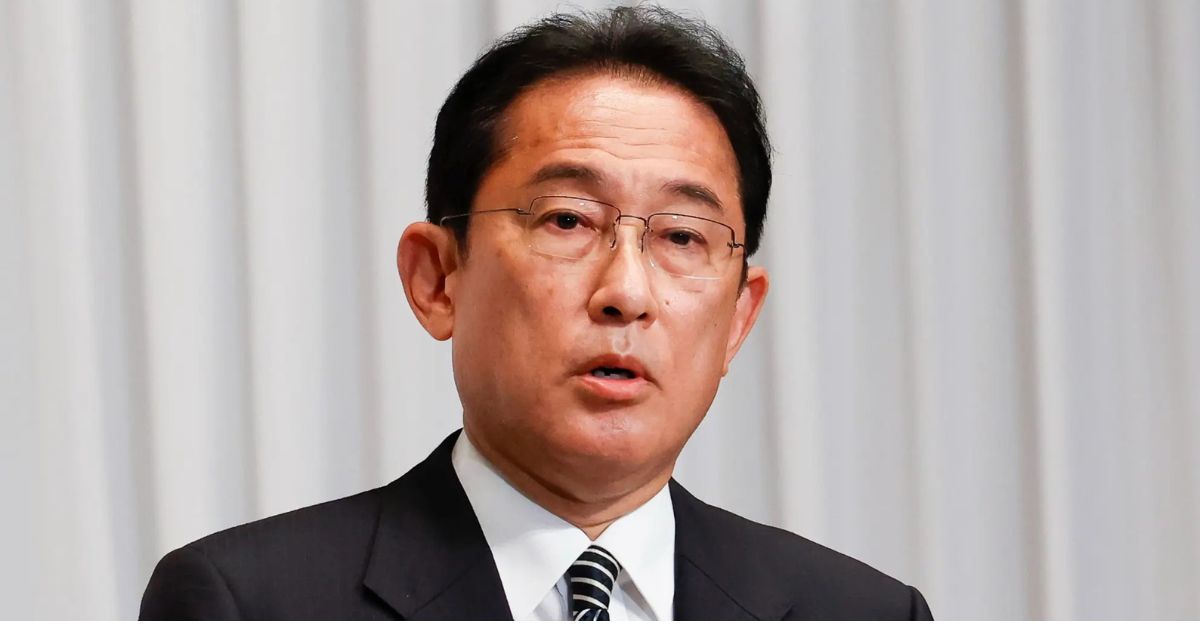Fumio Kishida, born on July 29, 1957, in Shibuya, Tokyo, is the current Prime Minister of Japan and leader of the Liberal Democratic Party (LDP). He assumed office on October 4, 2021, becoming the 100th Prime Minister of Japan. Known for his moderate political stance and diplomatic finesse, Kishida faces the challenge of steering Japan through regional tensions, economic uncertainty, and global shifts while reinforcing Japan’s international alliances.
Early Life and Family Background 🎓
Kishida hails from a political lineage. His father and grandfather were both politicians affiliated with the LDP. He spent part of his childhood in the United States when his father worked at a Japanese consulate in New York, which gave him early exposure to international perspectives and fluent English skills.
He later returned to Japan and graduated from Waseda University in 1982 with a degree in law. His early life shaped his diplomatic temperament, setting the foundation for a career in international politics.
Political Career and Rise to Leadership 🚀
Kishida entered politics in 1993 as a member of the House of Representatives, representing Hiroshima—a region closely associated with anti-nuclear sentiment due to the atomic bombing in 1945. His roots in Hiroshima have had a deep influence on his policy perspectives, particularly on peace and disarmament.
Over the years, he held several ministerial roles:
- Minister of State for Okinawa Affairs and Consumer Affairs (2007)
- Minister for Foreign Affairs (2012–2017)
As Foreign Minister under Prime Minister Shinzo Abe, Kishida was praised for his steady handling of diplomatic affairs. He helped negotiate the landmark 2015 agreement with South Korea addressing the “comfort women” issue.
More on Kishida’s political background – Nippon.com
Ascension to Prime Minister ✨
Following Yoshihide Suga’s resignation, Kishida won the LDP leadership race in September 2021, defeating rivals like Taro Kono. He was formally elected Prime Minister by the Japanese Diet in October.
His rise marked a return to stability within the LDP and a pivot toward more consensus-driven leadership. Kishida promised a new form of capitalism focused on narrowing wealth gaps, strengthening the middle class, and promoting innovation.
Key Policies and Domestic Agenda 🔬
Kishida’s domestic agenda includes:
- “New Capitalism” Policy: Aimed at balancing economic growth with income redistribution.
- COVID-19 Response: Managed Japan’s vaccine rollout and economic recovery.
- Defense Modernization: Increased defense spending in response to regional threats.
- Childcare and Demographic Issues: Initiatives to combat Japan’s declining birthrate and aging population.
- Digital Transformation: Advancing Japan’s digital infrastructure and services.
Explore: Japan Times overview of Kishida’s economic plans
Foreign Policy and Diplomacy 🌐
Kishida’s diplomacy builds upon his tenure as Foreign Minister. His international strategy includes:
- Strengthening the U.S.-Japan Alliance: A key pillar of Japanese foreign policy.
- Proactive Engagement in the Indo-Pacific: Supporting a Free and Open Indo-Pacific vision.
- Balancing Relations with China: While maintaining economic ties, he has emphasized security and sovereignty.
- Support for Ukraine: Japan under Kishida imposed sanctions on Russia and provided aid to Ukraine.
- Expanded Role in Global Forums: G7, Quad, and ASEAN partnerships have seen renewed focus.
Reference: Council on Foreign Relations – Japan’s Strategic Role
Defense and Security Strategy 🌟
In a historic shift, Kishida’s government has committed to doubling defense spending over five years, aiming to reach 2% of GDP. This move includes:
- Enhancing missile defense systems.
- Acquiring counter-strike capabilities.
- Deepening security cooperation with the U.S., Australia, and India.
This pivot comes in response to regional threats from North Korea, China, and a militarized Russia.
Read more: CSIS commentary on Japan’s defense evolution
Challenges and Criticisms ⚠️
Despite his composed demeanor, Kishida faces several hurdles:
- Public Discontent over inflation and rising energy costs.
- Low Approval Ratings due to communication style and policy delays.
- Scandals involving LDP fundraising and ties to controversial religious groups.
- Demographic Decline, which threatens long-term economic sustainability.
Critics argue that Kishida needs to act more decisively and visibly on pressing reforms.
Personal Life and Public Image 👥
Fumio Kishida is married to Yuko Kishida and has three sons. He is known for his mild-mannered, consensus-driven personality, often contrasted with more assertive predecessors.
He enjoys baseball, particularly as a fan of the Hiroshima Toyo Carp, and has expressed a fondness for sake brewing, a craft linked to his family.
His communication style, while seen as calm and diplomatic, is sometimes viewed as lacking charisma. However, his earnestness has earned respect across party lines.
Legacy and Vision for Japan 🌎
While still early in his premiership, Kishida aims to define his legacy through:
- Rebalancing Japan’s economy.
- Strengthening democratic alliances.
- Ensuring Japan’s place as a leading voice in global diplomacy.
As Japan navigates shifting geopolitical landscapes, Kishida’s steady, if understated, leadership may become increasingly significant.
External Resources 🔗
- Fumio Kishida – Britannica Profile
- Official Website of the Prime Minister of Japan
- NHK World – Japan Political Coverage
- Japan Ministry of Foreign Affairs
- Japan Times – Leadership Articles
Conclusion 📆
Fumio Kishida’s journey from the halls of Waseda University to the highest office in Japan reflects a commitment to diplomacy, reform, and balanced governance. As he navigates turbulent global waters and complex domestic challenges, the world watches how Japan under his stewardship will evolve in the 21st century.
For more in-depth profiles of global leaders, visit The Knowledge Pulse 🌐
